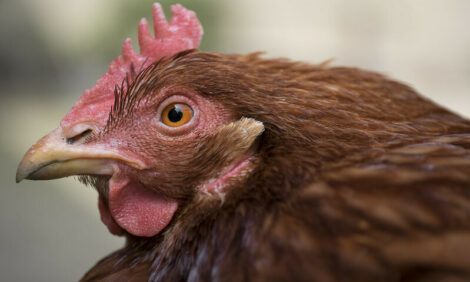



Incubation Temperature Impacts Pullet Immunity
NETHERLANDS - Incubation temperature of layer embryos affects their development and alters the response to an infection encountered several weeks after hatch, according to new research from Wageningen University reported in its Animal Breeding & Genomics newsletter.This outcome emphasizes the importance of conditions in the hatchery for the development of more robust laying hens. This was demonstrated by the Animal Breeding and Genomics Centre in the latest experiment in the PhD project 'Adaptation capacity of rearing hens', and was recently submitted to Poultry Science for publication.
In this experiment, the resarhcers investigated the effects of suboptimal compared with optimised incubation temperature on embryo and chick development and the response of the hatched rearing-hens to a model infection (Eimeria) at 36 days of age. Furthermore, the capacity of the rearing hens to respond to the infection under more challenging circumstances was also investigated by exposing them to a high temperature (35°C) for 72 hours preceding the infection.
The results of this experiment demonstrated a reduction in chick quality due to suboptimal incubation temperature, but there were no effects on further body weight development throughout life. The scintists also report an altered response to the infection, represented by tendencies to a lower body weight gain, feed intake and higher oocyst production in these hens. The exposure to heat before the infection tended to enhance some of these effects.
Rearing hens in production systems are continuously at risk for infections. To prevent infections from spreading through the flock, various control methods are currently used. However, these methods not only increase production costs, but also prevent rearing hens from building up their own adaptive capacity to combat these infections. The Wageningen PhD project aimed to investigate the importance of early life conditions on the capacity to generate an adaptive response in times of infection. The project mainly focused on early life conditions that can also be found in practice.








